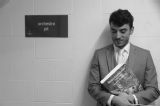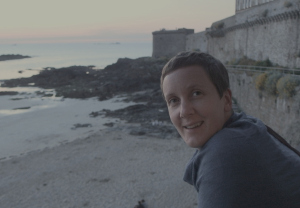Translation Workshops
For competition entrants, we have uploaded a webcast of each workshop run in 2019 which you can watch here.
Who is the Audience? [and other perils of musical translation for the stage!]
Friday 25 January 2019, 3-5pm in PS1.28
In this workshop on song and translation, Benjamin Hamilton, award-winning translator of opera with translations for Warwick Arts Centre, London’s Hackney Empire and Hampstead Garden Opera, will introduce his approach to translating song for the stage. This focuses on one simple question: who is the audience?

Translation is the process of translating words or text from one language into another. Or is it?
When we watch a play, see an opera or sing a song which originated in another language, is it enough to merely capture an understanding of only the words of the original? Is it possible, vital or even relevant to do this? Is it the essence of those words, the ideas contained in them for the source culture or the intended impact on the (original) audience that is important?
How can you best capture the life-experience (limitations?) of a nineteenth century German audience for a translation of "Die Fledermaus" set in multicultural twenty-first century Hackney, London?
‘Page to Stage’: Theatre Translation Workshop
Friday 1st March 2019, 9.30-11.30 in R0.14
Hosted by theatre translators and actors Lucy Phelps (RSC, West End) and William Gregory (Royal Court Theatre, Gate Theatre London) and aimed at Undergraduate students in the School of Modern Languages and Cultures, this interactive, practical workshop will look at the pleasures of play translation and offer a helpful tool kit to apply when translating texts to be performed on stage.

Translation and theatre have gone hand in hand for centuries. From Aeschylus to the award-winning Yasmina Reza, our understanding of theatre and theatre history has depended consistently on the work of translators. Without translations, how would we have ever known the Three Sisters really want to go back to Moscow? Or Yerma’s greatest desire? The art of theatre translation has allowed the greatest dramas across the ages to travel the world, helping to break down borders, shine a light on the socio-political landscape of other countries and enriching theatre practice globally through exchange and transnational story-telling.
Translation theory has also been interlinked with theatre since the earliest times. It was about plays that Cicero spoke when he described translating not just ut interpres but ut orator (not just as an interpreter, but as a speaker). In recent decades, scholars have explored theatre translation in more detail. Is there really such a thing as ‘speakability’? What do producers mean when they ask for a ‘literal translation’? And how can translators and other theatre-makers alike understand each other’s practice better and collaborate to bring the work of great writers across borders?
William has kindly made a bibliography (with some suggested reading) available for students. This can be downloaded here.
Literary Translation Workshop: Translating for children and young adults
Friday 3rd May 2019, 10-12 in OC1.06
Led by Dr Chantal Wright (Warwick)

In this workshop we will look at the issues that are specific to the translation of writing for children and young adults. The “children’s literature” category covers a wide range of different genres, from picture story books for the pre-literate and early readers, to chapter books for children consolidating their reading ability, to YA and crossover novels tackling potentially difficult issues, all of which pose different challenges for the translator. The workshop will address topics including the interplay of image and text; the importance of sound; word play and humour; and cultural difference and censorship.
You may wish to listen to one or both of the following radio programmes before attending the workshop:
BBC Radio 4, A World Beyond Alice (broadcast on Thursday 12 February 2015)
BBC Radio 4, A World for Children (broadcast on Friday 14 August 2015)
